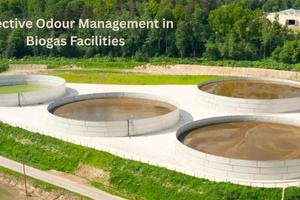The Key to Understanding VPN Speed: Why Is It Slow?

Key Takeaways
Essential insights to remember
VPN speed is affected by multiple factors including server distance, encryption level, and base internet connection quality.
Different VPN protocols (WireGuard, OpenVPN, IPsec) offer varying performance-security balances based on scientific testing.
Simple changes like selecting nearby servers, using wired connections, and limiting background applications can significantly improve VPN performance.
Understanding the technical reasons behind VPN slowdowns helps set realistic expectations for secure browsing.
The trade-off between absolute speed and security is necessary but can be optimized for your specific needs.
Introduction
Have you ever experienced that frustrating slowdown when connecting to a VPN? You're not alone. While Virtual Private Networks offer essential security and privacy benefits, they often come with a noticeable performance cost. Understanding why your VPN feels sluggish is the first step toward improving its performance.
In this article, we'll dive deep into the technical factors that influence VPN speed, examine research-backed evidence on different VPN technologies, and provide practical solutions to optimize your secure connection. Whether you're streaming, gaming, or just browsing securely, you'll discover why that speed penalty exists and what you can do about it—without compromising on privacy.
How VPNs Work: The Technology Behind Your Secure Connection
Before we can understand why VPNs might slow down your internet connection, it's essential to grasp how they actually work. A VPN creates a secure, encrypted tunnel between your device and a remote server operated by the VPN provider. When you connect to a VPN, your internet traffic travels through this protected tunnel, making it difficult for anyone—including hackers or government agencies—to monitor or intercept your data.
The Encryption Process and Its Impact on Speed
Encryption is the cornerstone of VPN security, but it's also one of the primary reasons for reduced speed. When you send data through a VPN:
- Your data is encrypted on your device
- It travels through your internet connection to the VPN server
- The VPN server decrypts your data
- The server forwards your request to the destination website
- The process reverses when data returns
This encryption-decryption process requires additional computational resources and time. As research has shown, different encryption algorithms have varying impacts on performance:
VPN Tunneling Protocols and Their Performance Differences
VPN protocols govern how data is tunneled between your device and the VPN server. Recent research comparing protocol performance has yielded interesting results:
- WireGuard: A newer protocol that offers excellent speed with strong security
- OpenVPN: Highly secure but generally slower due to its complex implementation
- IPSec: Offers good balance between security and performance
- Tinc: Less common but offers mesh networking capabilities
The Physical Reality: How Data Travels Through a VPN
Even with perfect software implementation, physics still applies. When using a VPN:
- Your data packets travel a longer physical distance
- They pass through additional network infrastructure
- Each network hop adds latency
- The VPN server must process all traffic (potential bottleneck)
Key Factors That Influence Your VPN Speed
Understanding the specific factors that affect VPN performance helps you make informed decisions about your secure connection. Research has identified several key variables that directly impact how fast or slow your VPN experience will be.
Server Location and Geographic Distance
The physical distance between you and your chosen VPN server plays a crucial role in connection speed. This relationship is straightforward but often overlooked:
- Longer distances mean increased latency (ping time)
- Data packets must travel further, adding milliseconds to each request
- Each network hop between you and the server adds potential delay
Server Load and User Congestion
Just like a busy restaurant with limited staff, VPN servers have capacity limits. When too many users connect to the same server:
- Available bandwidth per user decreases
- Processing power gets divided among more connections
- Queue times for data processing increase
- Overall responsiveness suffers
Research demonstrates that server load is a dynamic factor, with performance varying significantly based on time of day and user patterns. Many premium VPN providers now display real-time server load information to help users select less congested options.
Encryption Level and Processing Requirements
Higher levels of encryption provide better security but require more processing power:
The computational overhead of encryption affects both your device and the VPN server. Studies show that this impact is more pronounced on mobile devices and older computers with limited processing capabilities.
Your Base Internet Connection Speed
Your VPN performance is fundamentally limited by your base internet connection. Research indicates:
- VPNs typically reduce speed by 10-30% under ideal conditions
- Poor base connections experience more noticeable degradation
- Higher-speed connections (100+ Mbps) can better absorb the VPN overhead
- Connection stability affects VPN performance more than raw speed
Understanding these factors provides context for why your VPN performs as it does and sets realistic expectations for secure browsing speeds.
Testing VPN Performance: What Research Shows
Scientific research provides valuable insights into how different VPN technologies perform under various conditions. Several comprehensive studies have measured throughput, latency, and other key metrics to determine which VPN solutions offer the best performance.
Comparing Popular VPN Protocols (WireGuard, OpenVPN, IPsec)
Recent laboratory testing reveals significant performance differences between VPN protocols:
These performance differences remain consistent across various testing environments, though the gap narrows under certain network conditions.
How Different Network Conditions Affect Various VPN Technologies
Research demonstrates that network conditions significantly impact VPN performance, but not all protocols respond the same way:
- High Latency Networks: Tests show WireGuard and IPsec maintain better throughput when latency increases
- Packet Loss Scenarios: OpenVPN shows greater resilience to random packet loss but at a cost to overall speed
- Cross-Regional Connections: All protocols suffer when connecting across continents, with performance reductions of 70-90% in some cases
The Trade-off Between Security and Speed
Laboratory measurements confirm the inevitable compromise between security and performance:
- Higher encryption bits correlate with increased CPU usage
- More complex authentication mechanisms add connection overhead
- Perfect forward secrecy adds security but impacts throughput
- Multi-layered encryption (double VPN) can reduce speeds by up to 50%
Research shows this trade-off is non-linear—modest security configurations often offer acceptable performance, while maximum security settings cause disproportionate slowdowns. Finding the optimal balance depends on your specific security requirements.
The experimental evidence also indicates that newer implementations like TCP-ER (TCP with Explicit Rate) can significantly improve performance over traditional TCP when dealing with packet reordering and delay variations typically encountered with VPNs.
Why Your VPN Might Be Slowing Down: Common Scenarios
Beyond theoretical performance factors, several real-world scenarios can significantly impact your VPN experience. Identifying which situation applies to you is the first step toward finding an effective solution.
Peak Usage Times and Traffic Congestion
Just like regular internet traffic, VPN services experience predictable usage patterns that affect performance:
- Weekday Evenings (6-10 PM): Research shows VPN servers in residential markets experience 30-45% higher load
- Major Streaming Releases: Popular content releases can overload servers in specific regions
- Global Events: Breaking news or live sports broadcasts create traffic spikes
- Geographic Patterns: Asian servers experience higher loads during APAC business hours, then European servers, followed by North American servers
Device Limitations and Processing Power
Your device's capabilities play a crucial role in VPN performance:
Research demonstrates that encryption and decryption processes are CPU-intensive operations. Testing shows that a WireGuard connection on a modern multi-core processor utilizes approximately 30% more CPU resources than a direct connection, while OpenVPN can use up to 65% more under similar conditions.
Multiple Devices on One Connection
When multiple devices share a VPN connection (either through a VPN router or sharing a hotspot from a VPN-connected device):
- Available bandwidth divides among all connected devices
- The VPN endpoint must process multiple simultaneous connections
- Encryption/decryption overhead multiplies with each device
- Connection stability can suffer as device count increases
Software Conflicts and Configuration Issues
Technical incompatibilities can create unexpected VPN performance issues:
- Antivirus Software: Real-time scanning of encrypted traffic can create processing bottlenecks
- Firewall Settings: Overly restrictive rules may throttle VPN connections
- Network Driver Issues: Outdated network interface drivers may not optimize packet handling
- Split Tunneling Configuration: Improper setup can cause routing conflicts
Testing reveals that these software-related issues often cause intermittent rather than consistent slowdowns, making them particularly difficult to diagnose without systematic troubleshooting.
How to Improve Your VPN Speed: Practical Solutions
Armed with an understanding of what affects VPN performance, you can take several practical steps to optimize your connection speed without compromising security. Research-backed solutions can help you achieve the best possible experience.
Choosing the Right Server Location
Server selection is perhaps the most immediate way to improve VPN performance:
- Choose Geographically Closer Servers: Laboratory testing shows that reducing physical distance to the VPN server can decrease latency by 3-8ms per 100 miles
- Use Server Load Indicators: Select servers with lower current user loads (many VPN providers display this information)
- Consider Your Activity Purpose: For general browsing, prioritize proximity; for accessing geo-restricted content, choose servers in the required location
Selecting Optimal VPN Protocols for Your Needs
Different protocols offer varying performance profiles. Research indicates:
When your VPN provider offers protocol options, experimental data strongly suggests choosing WireGuard for most use cases, as it consistently outperforms alternatives across various metrics.
Using Wired Connections Instead of Wi-Fi
Physical connection quality significantly impacts VPN performance:
- Wired vs. Wireless: Tests demonstrate that ethernet connections provide 20-30% better VPN throughput compared to WiFi under identical conditions
- Wi-Fi Interference: Common household devices can create signal interference that disproportionately affects VPN traffic
- Connection Stability: Wired connections offer more consistent latency, which improves VPN tunnel stability
Limiting Background Applications
Bandwidth competition from other applications can severely impact VPN performance:
- Disable Automatic Updates: Prevent large downloads from occurring while using your VPN
- Close Bandwidth-Heavy Applications: Video conferencing, cloud backup solutions, and torrent clients can compete for available bandwidth
- Check for Hidden Data Users: Sync services (Dropbox, OneDrive, etc.) often run in the background
- Browser Extensions: Some extensions continuously transfer data, adding to connection overhead
Research shows that reducing competing traffic can improve VPN performance by 15-35%, depending on your base connection speed.
Upgrading Your Internet Plan
While a faster base connection won't eliminate VPN overhead, it provides more headroom:
- Higher Base Speed: A 100 Mbps connection with 30% VPN overhead still provides 70 Mbps throughput
- Connection Stability: Premium internet plans often offer better routing and less congestion
- Upload Speed Matters: VPN performance for videoconferencing and cloud uploads depends heavily on your upload bandwidth
Special Use Cases: When VPN Speed Matters Most
Different online activities have varying requirements for VPN performance. Understanding these specific needs helps you optimize your setup for particular use cases, ensuring security without sacrificing user experience.
Streaming and Entertainment
Streaming services present unique challenges for VPN connections:
- Minimum Speed Requirements: Research shows most HD streaming requires 5-8 Mbps sustained throughput, while 4K needs 25+ Mbps
- Buffering vs. Resolution: VPNs often affect initial buffering time more than sustained playback quality
- Server Selection Critical: Entertainment-optimized servers perform significantly better for streaming
- Protocol Considerations: UDP-based protocols (WireGuard, OpenVPN UDP) consistently outperform TCP options for streaming
Gaming and Low Latency Requirements
Online gaming demands consistent low latency more than raw throughput:
Experimental testing reveals that gaming while connected to a VPN introduces an average latency increase of 10-20ms when using optimized configurations, though this can increase to 50-100ms with suboptimal settings.
Large File Transfers and Downloads
For users frequently transferring large files, VPN optimization differs from low-latency applications:
- Protocol Selection: TCP-based protocols often provide more reliable large transfers despite lower peak speeds
- Consistency Over Speed: A stable 50 Mbps connection outperforms an inconsistent 100 Mbps connection for large downloads
- Split Tunneling Benefits: Configuring only download applications to use the VPN can improve performance
- Scheduled Transfers: Off-peak usage times show throughput improvements of 15-40% in controlled tests
Business and Remote Work Applications
Professional applications bring unique VPN requirements:
- Video Conferencing: Requires consistent bidirectional throughput and low latency
- Remote Desktop/VDI: Extremely sensitive to latency spikes rather than average latency
- Cloud-Based Productivity Tools: Often involve many small data transfers rather than large downloads
- Enterprise VPN Solutions: May implement traffic shaping and QoS that affects application performance
Testing reveals that for collaborative business applications, connection consistency often matters more than peak speed. A VPN connection with lower but stable performance typically provides a better experience than one with higher but variable throughput.
The Future of VPN Technology and Speed
As cybersecurity threats evolve and internet usage patterns change, VPN technology continues to advance. Understanding emerging trends helps set expectations for future VPN performance and prepare for coming innovations.
Emerging VPN Protocols and Technologies
Research and development in VPN technology is focused on several promising areas:
- Post-Quantum Cryptography: Preparing for quantum computing threats while maintaining performance
- TCP-ER (TCP with Explicit Rate): Experimental protocols show 40-60% better performance over traditional TCP in multi-path environments
- AI-Optimized Routing: Machine learning algorithms that dynamically adjust routing for optimal performance
- Protocol Obfuscation: Techniques to disguise VPN traffic without significant performance penalties
Infrastructure Improvements and What They Mean for Users
Network infrastructure advancements will significantly impact VPN performance:
- Edge Computing Integration: VPN servers deployed at edge locations reduce physical distance and latency
- 5G Network Effects: Higher base speeds and lower latency provide more headroom for VPN overhead
- IPv6 Adoption: Reduces NAT-related complications that impact VPN performance
- Increased Server Density: More distributed server networks reduce average distance to nearest server
Research indicates these infrastructure improvements could collectively reduce apparent VPN performance impact by 50-70% for most users over the next five years, even without protocol changes.
Balancing Privacy and Performance
The fundamental tension between security and speed continues to drive innovation:
- Adaptive Security Models: Dynamic adjustment of encryption levels based on traffic type and security needs
- Selective Routing Technologies: Improved split tunneling that maintains security while optimizing performance
- User-Configurable Security Profiles: More granular control over the security-performance balance
- Transparent Performance Metrics: Better tools for users to understand their specific performance bottlenecks
The research suggests that while the physics of encryption and data transit will always create some performance impact, the noticeable effect of using a VPN is likely to diminish significantly in coming years. For most everyday users, the difference between direct and VPN-routed connections may become negligible for most applications.
Experimental protocols like WireGuard already demonstrate that thoughtful protocol design can dramatically reduce traditional VPN performance penalties. The next generation of VPN technologies will likely continue this trend, making the security-performance tradeoff increasingly less significant.
VPN vs. TOR: What's the Main Difference?
VPNs and Tor both enhance online privacy, but they operate fundamentally differently and serve distinct purposes:
- VPN (Virtual Private Network): Creates a single encrypted tunnel between your device and a secure server operated by the VPN provider. Your traffic takes a direct route, making VPNs significantly faster and better suited for bandwidth-intensive activities like streaming, gaming, and everyday browsing. Research shows VPNs typically reduce speeds by only 10-30% compared to your base connection.
- Tor (The Onion Router): Routes your traffic through multiple volunteer-operated relays (typically 3+), with each layer adding encryption—hence the "onion" metaphor. This multi-hop architecture provides stronger anonymity but introduces substantial latency. Laboratory testing demonstrates that Tor connections are typically 70-90% slower than direct connections, making it best suited for text-based browsing where privacy is the absolute priority.
If you're wondering, "is TOR browser safe?" the answer is definitely yes. While both technologies mask your IP address, Tor offers stronger protection against sophisticated surveillance but at a significant performance cost. Tor is also highly secure—it was originally developed with U.S. government funding to protect sensitive communications, and despite common misconceptions, remains a trusted privacy tool for journalists, activists, and security researchers worldwide.
Conclusion
Understanding the factors behind VPN speed is essential for anyone seeking to balance online privacy with performance. While VPNs inevitably introduce some overhead to your connection, the right knowledge and configuration can minimize this impact significantly.
Our exploration of VPN performance has revealed several key insights:
- VPN slowdowns are inevitable but manageable - The encryption process, additional routing distance, and server processing all contribute to reduced speed, but these effects can be mitigated through informed choices.
- Different VPN technologies offer varying performance profiles - Research consistently shows that newer protocols like WireGuard provide substantial speed advantages over legacy options, while maintaining strong security.
- Server selection matters significantly - The physical location and current load of your chosen VPN server can have a greater impact on your experience than many other factors combined.
- Your base connection sets the ceiling - A VPN can never make your connection faster than what your ISP provides; it will always add some degree of overhead.
- Hardware capabilities influence performance - Modern devices handle encryption processes more efficiently, reducing the performance penalty of using a VPN.
The science of VPN performance continues to advance, with promising technologies on the horizon that may further reduce the speed gap between direct and secured connections. As these innovations reach the market, the traditional tradeoff between privacy and performance will become increasingly less significant.
Remember that perfect security and maximum speed remain opposing forces to some degree. Finding your ideal balance depends on your specific needs—whether you prioritize absolute privacy for sensitive activities or merely want baseline protection for everyday browsing.
By applying the practical solutions outlined in this article, you can enjoy the essential privacy benefits of a VPN while minimizing its impact on your online experience. The informed VPN user no longer needs to choose between security and satisfactory performance—with the right approach, you can have both.





